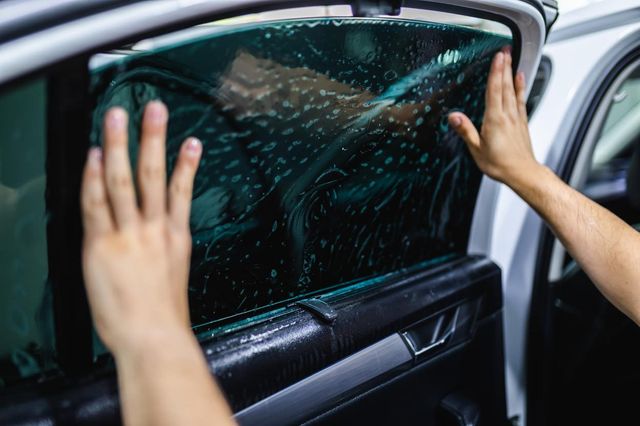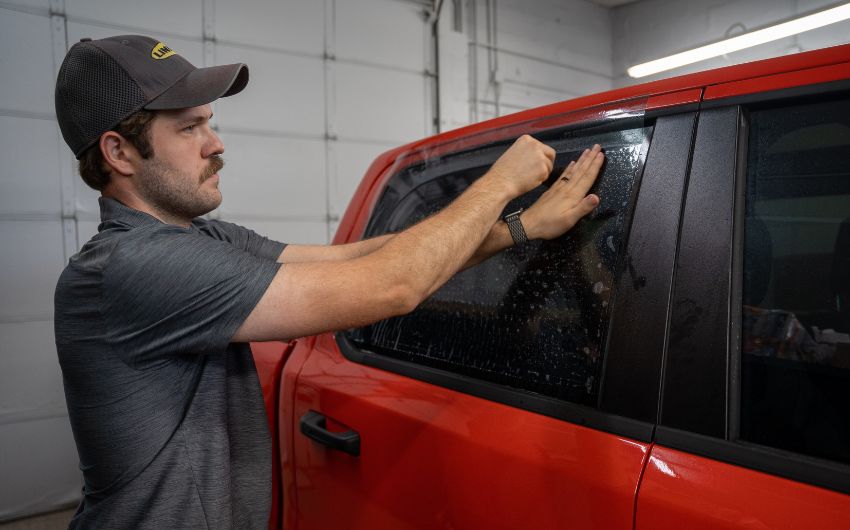Exactly How Vehicle Window Tinting Can Increase the Resale Value of Your Auto
Exactly How Vehicle Window Tinting Can Increase the Resale Value of Your Auto
Blog Article
Window Tinting Regulations and Guidelines: What You Required to Know Before Tinting Your Automobile
Before continuing with window tinting for your automobile, it is essential to familiarize on your own with the diverse laws and guidelines that regulate this method throughout various states. These guidelines dictate the acceptable degrees of color darkness, commonly gauged by noticeable light transmission (VLT) percents, and include details specifications for front windshields intended at making certain road safety and security.
Review of Home Window Tinting Rules
Home window tinting legislations are regularly subject to variant across various jurisdictions, showing regional regulations and safety and security considerations. These regulations determine the acceptable levels of tint darkness and reflectiveness on car windows, ensuring that motorists maintain appropriate exposure while also securing versus dangerous UV rays and heat.
Most laws identify home window tinting based on the Visible Light Transmission (VLT) percentage, which suggests the quantity of light that can go through the home window. Normally, lower VLT portions symbolize darker tints. Legislations frequently distinguish between the front, side, and rear home windows, with more stringent restrictions applied to the front windshield to enhance safety and security for both the vehicle driver and other road users.
Conformity with home window tinting guidelines is essential, as infractions can result in penalties, required removal of the color, and possible rises in insurance coverage costs. It is vital for automobile proprietors to acquaint themselves with regional regulations before proceeding with window tinting installations.
State-by-State Color Rules
Recognizing the particular home window tinting laws in each state is important for automobile proprietors looking for to adhere to the regulation. Each state in the U.S. has established its own collection of rules governing home window tinting, which can vary significantly. These guidelines typically dictate the allowed degrees of tint darkness, the sorts of home windows that can be tinted, and any clinical exemptions that might apply.
For example, states like The golden state have strict constraints on tint darkness for front windows, while others, such as New Mexico, may permit darker tints. In addition, particular states mandate certain presence portions for numerous windows, consisting of the windshield, front side windows, and rear home windows. It is important for car proprietors to familiarize themselves with their state's regulations to stay clear of possible fines or penalties.
Moreover, some states might call for an accreditation sticker label to be put on colored home windows, indicating compliance with state regulations. Failing to comply with these policies not only risks lawful consequences but can additionally impact safety and security and exposure while driving. As a result, lorry proprietors should perform complete study or get in touch with regional authorities to make certain complete understanding and compliance with state-by-state tint regulations.
Allowed Color Degrees and Kinds
Lots of automobile proprietors might be amazed to find out that permitted tint levels and types differ widely throughout various states. Each state has established its very own regulations relating to the acceptable darkness and reflectivity of home window color, typically measured by Visible Light Transmission (VLT) percents. VLT describes the amount of light that can travel through the tinted windows; hence, a lower percent shows a darker tint.

Furthermore, the sorts of color materials enabled can vary, with some states prohibiting mirror-like or metallic finishes. It is necessary for lorry owners to acquaint themselves with their state's specific laws to make certain conformity. Non-compliance can lead to fines, required elimination of the tint, or other legal repercussions, making it important to comprehend these laws before waging setup.
Medical Exceptions for Tinting
While not all states supply allowances for clinical exceptions browse around this web-site relating to home window tinting, those that do recognize the necessity for particular people to improve presence and convenience due to medical problems. Numerous medical conditions, such as lupus, skin cancer cells, and specific eye problems, can render people particularly conscious sunlight. These individuals may call for darker tints to shield themselves from dangerous UV rays and glare.

It is very important to note that despite a clinical exception, there might still be limitations on the degree of color permitted. Conformity with state regulations makes certain that people are both protected and within lawful limitations. Those considering medical exceptions should contact their local Division of Motor Automobiles or equivalent authority to recognize the procedures and demands needed to look for an exception efficiently.
Penalties for Non-Compliance
Failing to abide by window tinting regulations can lead to significant fines, which differ by state. Law enforcement companies are empowered to issue citations for cars that do not follow the specified tinting regulations. These fines usually include fines, which can range from modest total up to numerous hundred dollars, depending upon the intensity of the infraction and the state in question.
In some territories, repeated offenses may cause escalating penalties or added charges, such as compulsory court appearances. In addition, non-compliance may require the elimination of illegal tinting, commonly at the owner's expenditure. In severe instances, regular offenders may encounter suspension of their automobile enrollment until compliance is attained.
In addition, insurance coverage ramifications may arise from getting several citations for home window tint violations. Insurers may watch such offenses as an indication of riskier behavior, potentially leading to boosted premiums or difficulty in protection.
To prevent these fines, it is crucial for automobile proprietors to familiarize themselves with their regional home window tinting legislations my explanation and guarantee that their automobile complies (Window Tinting). This aggressive method not only prevents lawful implications however likewise promotes roadway safety and security
Conclusion

The majority of policies identify window tinting based on the Visible Light Transmission (VLT) portion, which suggests the quantity of light that can pass through the window. Conformity with home window tinting laws is essential, as violations can result in fines, required removal of the tint, and potential boosts in insurance site link policy costs.Understanding the certain window tinting regulations in each state is essential for vehicle owners seeking to conform with the legislation. These laws frequently determine the permitted degrees of color darkness, the kinds of windows that can be tinted, and any type of medical exemptions that might use.
For circumstances, states like The golden state have strict limitations on tint darkness for front home windows, while others, such as New Mexico, may allow darker colors.
Report this page